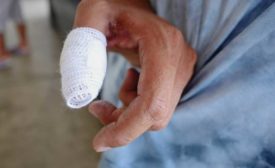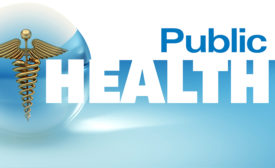Home » Keywords: » infection prevention
Items Tagged with 'infection prevention'
ARTICLES
A NIOSH Science Blog post
NIOSH research highlights importance of rigorous standards for gowns used to protect healthcare workers
August 1, 2015
Hospital workers wash hands less frequently toward end of shift, study finds
Research could have implications for other industries
November 14, 2014
Get our new eMagazine delivered to your inbox every month.
Stay in the know on the latest safety trends.
SUBSCRIBE TODAYCopyright ©2024. All Rights Reserved BNP Media.
Design, CMS, Hosting & Web Development :: ePublishing






